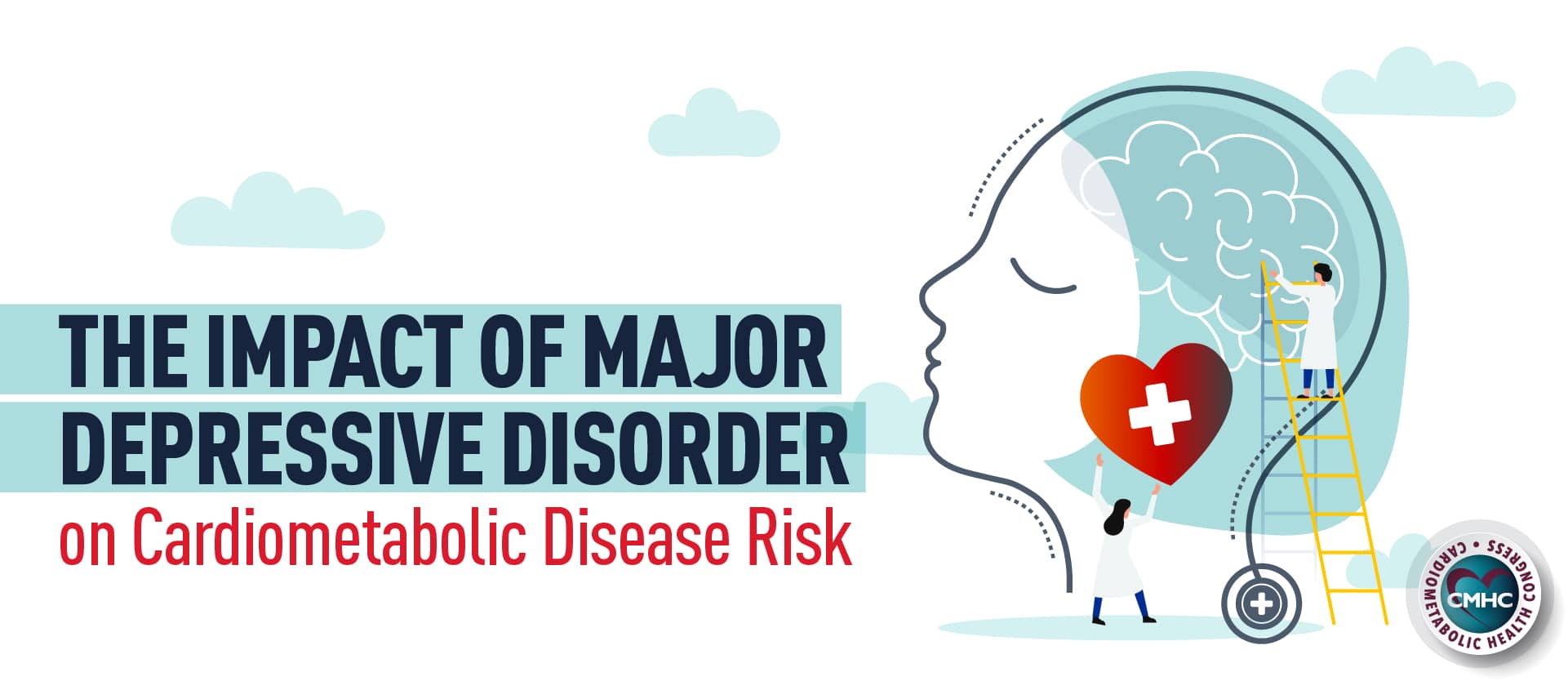Driven by a widespread change in lifestyle factors, such as dietary patterns and physical activity levels, as well as heightened stress levels, the global prevalence of cardiometabolic disease continues to rise. A burgeoning body of evidence suggests the potential impact of mental health factors, specifically the presence of major depressive disorder (MDD) on the development of cardiometabolic conditions. Affecting an estimated 322 million people, MDD has a high comorbidity rate with other medical disorders and in particular, type 2 diabetes. Although the mechanisms underlying the potential causal associations between the two are unknown, both cardiometabolic disease and major depressive disorder place a significant burden on population health.
Past observational studies have reported an association between MDD and an increased risk for type 2 diabetes, caused by biological alterations – such as elevated counter-regulatory hormone release and activity – as well as poor lifestyle factors, including smoking and alcohol consumption. Research has shown that brain regions involved in mood regulation also control metabolism, hypothalamic-pituitary-adrenal (HPA) axis, inflammatory responses, and autonomic nervous system (ANS) thus, controlling heart rate and blood pressure. These factors may influence the relationship between MDD and certain cardiometabolic conditions, however, evidence remains limited.
Adding to the growing body of evidence, a recent bidirectional Mendelian randomization study published in Diabetologia aimed to assess the causal relationships between major depressive disorder, type 2 diabetes, coronary artery disease, and heart failure to further elucidate the connections.
MDD and Cardiometabolic Disease
A team of researchers utilized the Mendelian randomization method – used for assessing causal inference of exposures on outcomes based on genetic variants as instrumental variables for exposures – to diminish chances of residual confounding and eliminate reverse causality due to the fixed nature of genetic variants regardless of disease progression or development.
In conducting their investigation, researchers extracted summary-level data for MDD, T2D, CAD, and heart failure from corresponding large genome-wide association studies; they used 96 single-nucleotide polymorphisms (SNPs) for MDD, 202 SNPs for type 2 diabetes, 44 SNPs for CAD, and 12 SNPs for heart failure. To perform their main analyses, the random-effects inverse-variance weighted method used.
Impact of MDD on Cardiometabolic Risk
Overall, the study’s authors found that the genetic liability to MDD was significantly associated with type 2 diabetes and coronary artery disease; they also found a suggestive association between MDD and heart failure. In examining the causal relationship, the research team found limited evidence in support of the causal effects of cardiometabolic disease on MDD risk, indicating that the presence of these conditions may not increase the likelihood of major depressive disorder.
However, meta-analyses did prove that the presence of MDD had an impact on type 2 diabetes development with the potential to increase risk by up to 60%. Additionally, the team found evidence of MDD having a causal association with the risk of CAD and HF. As diabetes and CAD have been known risk factors for HF and CAD may explain over 60% of heart failure cases, the relationship between major depressive disorder and heart failure may possibly be mediated via type 2 diabetes and coronary artery disease.
The latest findings further validate previous evidence that MDD is a potential risk factor for both type 2 diabetes and CAD, however, additional research needs to be conducted to determine whether MDD is causally related to heart failure. Future studies are likely to continue investigating the correlation to determine the significance of the impact of MDD on cardiometabolic health as well as to assess potential therapeutic interventions.
Due to the high disease burden related to causal association, the study’s authors recommend “that MDD prevention, management, and treatment should be enhanced for type 2 diabetes prevention.” Implications for the clinical practice may include more targeted strategies for the prevention and treatment of cardiometabolic diseases in the future with an increased focus on the mental health of patients.


















